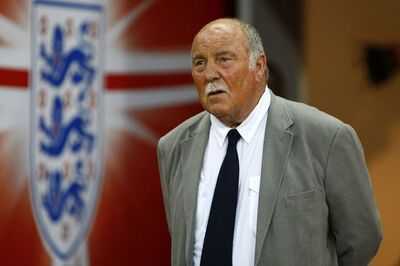
Jimmy Greaves, the legendary footballer, spoke candidly about the difficulties he encountered after hanging up his boots. His remarkable tally of 402 goals in 617 matches, including spells with Chelsea and Tottenham, made him a household name.
He played a role in the triumphant 1966 World Cup squad for England, although he was absent from the final after getting injured against Argentina in the quarterfinal and subsequently losing his place to Geoff Hurst, who went on to score a memorable hat-trick in the final. Sadly, Greaves passed away at the age of 81 in September 2021.
While his playing career was illustrious, the financial rewards in his era were nothing like today’s lucrative football world, leading him to make a living by selling clothes from his modest accommodation post-retirement.
READ MORE: Forgotten Tottenham star faces make or break meeting with Thomas Frank five years after transfer
READ MORE: Mauricio Pochettino breaks silence on interview and Tottenham return amid Thomas Frank decision
In an interview with The Guardian back in 2003, Greaves lamented: "Let's make no bones about it. I wish I was playing today. Some of the players get half a dozen goals a year and earn a fortune. I look back at my Chelsea days when you had to fight to get £8 a week in the winter and £7 a week in the summer, and now there are players who haven't even played in the first team on 40 grand a week."
Greaves’ latter years as a player were marred by alcoholism, which had adverse effects on his time at West Ham, Brentwood, and Chelmsford City and continued to trouble him upon descending the tiers of English football.
He candidly shared about his struggles with alcoholism in the 1970s, revealing how it affected his life. "I lost the 70s completely. They passed me by. I was drunk from 1972 to 1977. I woke up one morning and realised that it was a different world. I'd been living in it, but I hadn't been aware of it."
As the decade drew to a close, Greaves' life hit rock bottom, facing bankruptcy and a divorce from his wife, Irene. He was forced to move into a modest one-bedroom flat and resorted to selling women's jumpers to make ends meet.
The harsh realities of his situation eventually prompted Greaves to acknowledge his drinking problem, stating: "I realised that I had to stop drinking long before I stopped. It wasn't an overnight thing."
Greaves' battle with addiction even saw him spend five months at Warley mental home in 1977.
However, he ultimately found the strength to quit drinking, saying: "One day I said, 'That's it' and I just walked away from it, and fortunately, to this day, I've stayed clear of it.
"Are there times when I really want to have a drink? Of course there are, same as everybody else; it doesn't dehumanise you. You get down the same as everybody else and you'd like to go out and have a few jars, but you know that you can't do that."
Although there were times when Greaves felt the urge to drink again, he persevered. Following his recovery, Greaves briefly explored a career in football media, working as both a columnist and a television presenter. He struck up a superb rapport with former Liverpool striker Ian St John, with the Saint and Greavesie show proving to be hugely popular.
However, he concluded that the financial rewards weren't substantial. Greaves acknowledged: "Playing football gave me a good living and television also gave me a good living, but if you say, 'Have I got any money?', the answer's no. I've just never earned enough to pack it away."